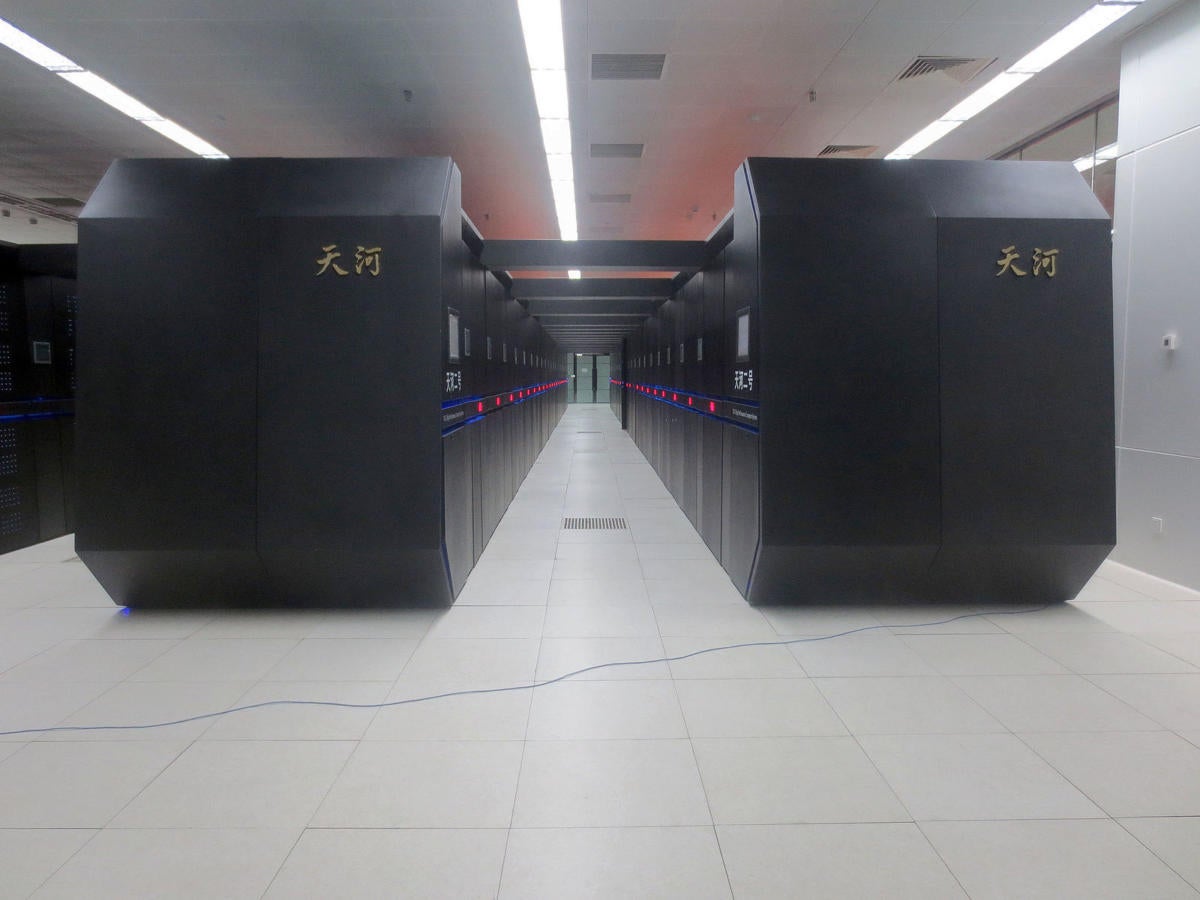China reminds Trump that supercomputing is a race
Source: Patrick Thibodeau
 China intends to develop a prototype of an exascale supercomputer by the end of 2017, tweaking an exascale delivery date that's already well ahead of the U.S. The timing of the announcement, reported by an official government news service, raised the possibility it was a message to President-elect Donald Trump.
China intends to develop a prototype of an exascale supercomputer by the end of 2017, tweaking an exascale delivery date that's already well ahead of the U.S. The timing of the announcement, reported by an official government news service, raised the possibility it was a message to President-elect Donald Trump.
China's announcement comes the same week Trump takes office. The Trump administration is bringing a lot of uncertainty to supercomputing research, which is heavily dependent on government funding.
"The exascale race is also a publicity and mindshare race," said Steve Conway, a high-performance computing analyst at IDC. "The Chinese are putting a stake in the ground and saying we're going to have a prototype computer soon, maybe a year or so sooner than people expected," he said.
The Hill reported Thursday that the Trump administration is planning deep cuts at the U.S. Department of Energy, which funds the development of the America's largest supercomputers.
This report, which didn't name sources, said the Trump administration was considering cutting advanced scientific computing research to 2008 levels, a position advocated by conservative think tank The Heritage Foundation.
China's exascale prototype update, a system previously expected in 2018, arrived at the same time a U.S. Senate committee held a confirmation hearing of Rick Perry, the former Texas governor and Trump's nominee for Secretary of Energy.
Perry once called for the elimination of the department, but at today's confirmation hearing he said he regretted that earlier statement.
The Internet of Things (IoT) is booming, and the future of interconnectivity looks bright. Many wonder, “What’s next?”
"I am a major proponent of maintaining American leadership in the area of scientific inquiry," said Perry, in prepared remarks to the Senate Energy and Natural Resources Committee. "I support the academic and government mission of basic research, even when it will not yield benefits for a generation."
China is building a supercomputing program not only to advance its scientific research capabilities, but to help it develop an IT industry independent of U.S. technology. Its TaihuLight system was built entirely with Chinese-produced microprocessors.
"A complete computing system of the exascale supercomputer and its applications can only be expected in 2020, and will be 200 times more powerful than the country's first petaflop computer Tianhe-1, recognized as the world's fastest in 2010," said Zhang Ting, application engineer with the Tianjin-based National Supercomputer Center, according to the report in the China Daily.
China had previously set 2020 as its delivery date for an exascale system, so the prototype plan does not change the broader deadline.
TaihuLight, can reach a peak of just over 125 petaflops. A petaflop system can perform one quadrillion arithmetic operations per second. An exascale system is 1,000 petaflops.
"It's not exactly clear what an exascale supercomputer prototype means," said IDC's Conway. The size of it is unknown, but he expects it will be a system with the same architecture of an exascale system, but a smaller version of it.
The U.S. has set a 2023 timeframe for development of an exascale system that is fully capable of running applications. The U.S. plans to order the systems in 2019, but the Trump administration may have different goals. Japan, Europe and maybe even Russia are in the race to build exascale systems.
The Department of Energy develops and safeguards the nation's nuclear weapons. It uses supercomputers to conduct simulations of nuclear weapons. But these systems are also used heavily for basic research by academic and industry researchers throughout the U.S.
| }
|